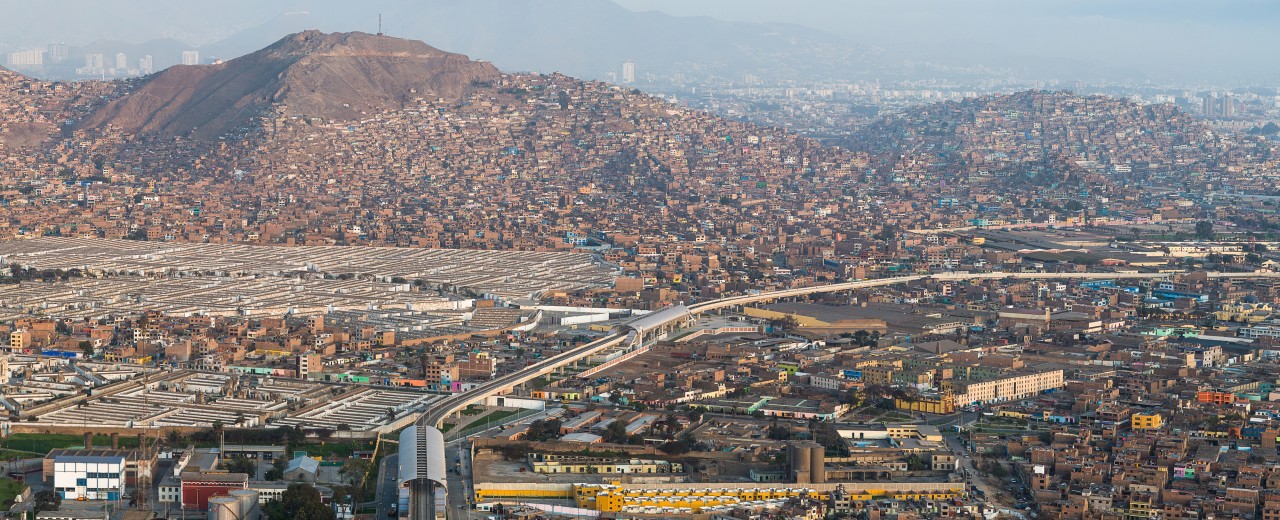
In Peru, close to 80% of the population now live in cities. Insufficient mobility offers are an obstacle to the economic development of urban centres and the supply of the population there. The transport sector in Peru is responsible for almost 26 million tonnes of carbon emissions per year, which corresponds to around 40% of the country’s total emissions. KfW is therefore supporting the country in building sustainable, climate-friendly and environmentally friendly mobility systems. To date, KfW has committed a total of around EUR 308 million to this programme. Around EUR 288 million of this is provided in the form of loans that are being repaid. Several German companies have received orders totaling around EUR 100 million as part of the project.
Cities are densely populated, with air pollution already at very high levels. Accident rates are also almost nine times higher than in Germany in terms of the number of cars. There are hardly any alternatives to cars as yet. Lima is the only city in Peru to have a metro line and an express bus line, both of which are heavily congested. But even there, both are not enough. Large areas of the city, home to 11 million, are still inadequately served by public transport; the mobility needs of the population – especially the poor – are thus far from being met.
KfW is promoting the expansion of the public transport network in the Lima metropolitan area and alternatives to car usage. The transport sector is being modernised; the reforms needed to facilitate this are being introduced. An important prerequisite is that the institutions have the expertise and structures that they need to actually implement sustainable urban transport planning in practice. So the measure also supports the development of this expertise. Within the scope of the programme, support was provided to establish a municipal transport company (Autoridad de Transporte Urbano para Lima y Callao) that will create an integrated offering in the metropolitan area and develop a master plan for the public transport network.
Co-financing of the expansion of the metro in Lima as part of a larger banking consortium (around EUR 193 million) is the largest item of KfW’s promotion. In addition, non-motorised transport is also being promoted. To this end, the Peruvian government was supported in passing legislation to recognise and promote bicycle use as a sustainable mode of transport, and to implement the construction of cycle paths. The expansion and improvement of the cycle path network in Lima is being promoted with EUR 20 million. Creating a cycle path network in one of South America’s largest and fast-growing cities has multiple benefits: it contributes to reducing carbon emissions and environmental impacts, and it also enables more participation of the poor in social and economic life through affordable mobility.
All of these complementary measures are intended to further promote the modernisation of public transport and the use of bicycles as an affordable and climate-friendly means of transport in Peru as a whole. This is because the project is not limited to Lima, but is also to be extended to other medium-sized cities in the future. Specifically, in addition to the expansion of cycle paths, this involves the introduction of express bus lines, tram lines and the integration of various public transport services. An initial component for building a high-speed bus system in the city of Trujillo is already being implemented.
Share page
To share the content of this page with your network, click on one of the icons below.
Note on data protection: When you share content, your personal data is transferred to the selected network.
Data protection
Alternatively, you can also copy the short link: https://www.kfw-entwicklungsbank.de/s/enzBXz5B
Copy link Link copied